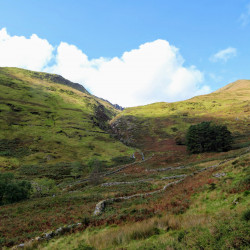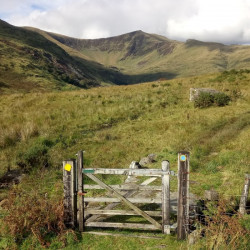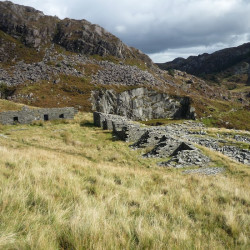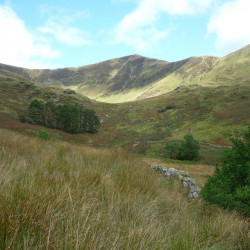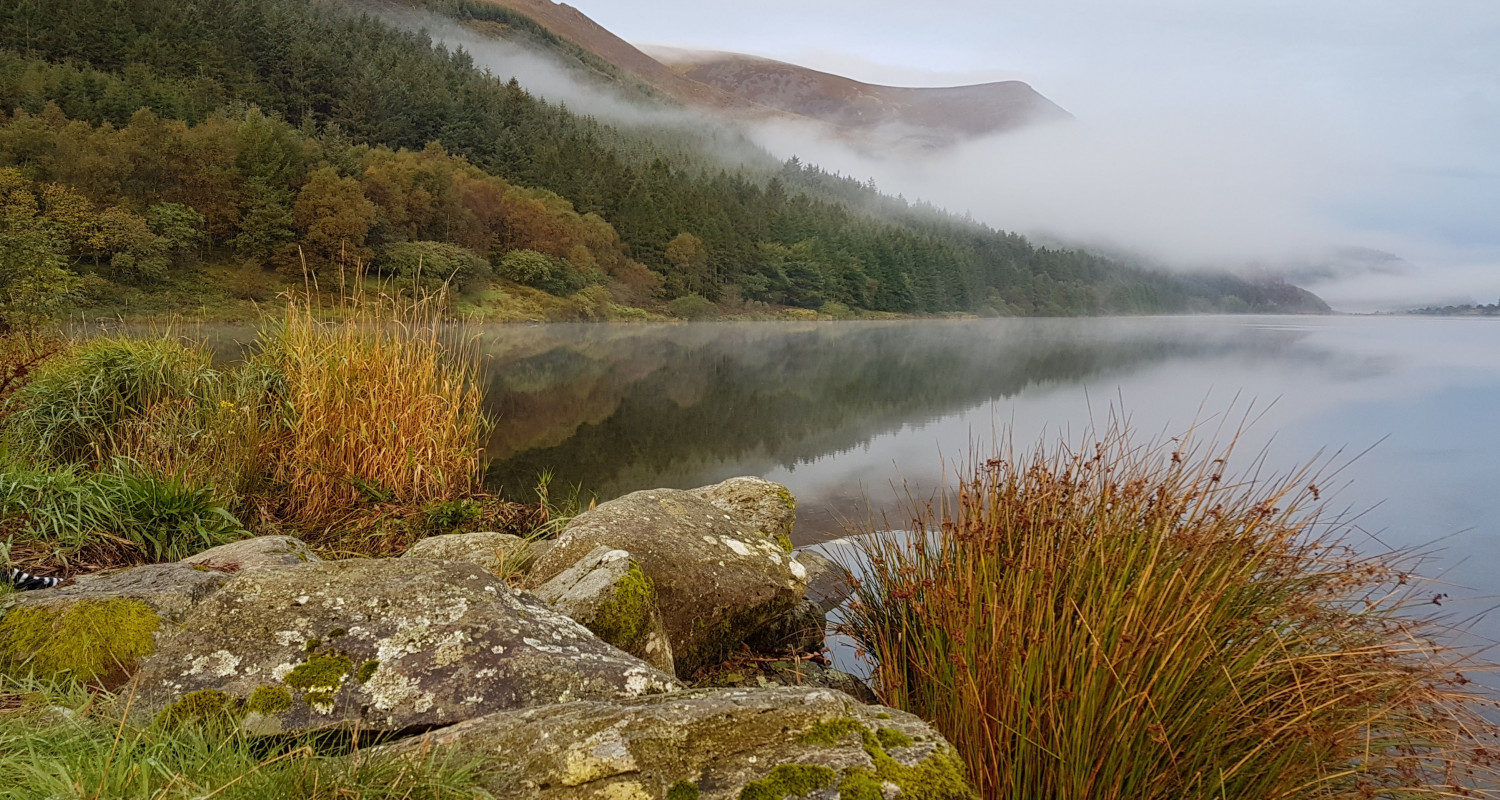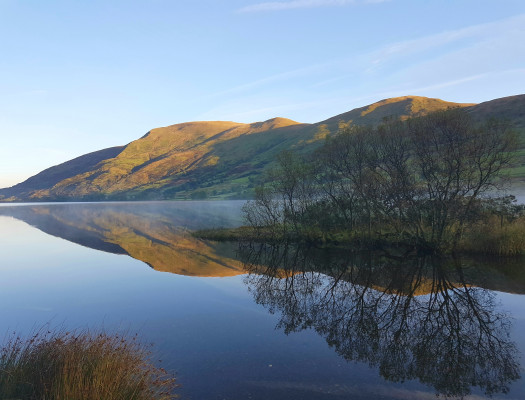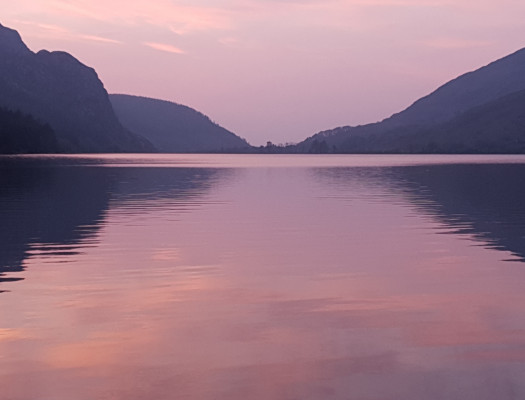“O Lord, why did you make Cwm Pennant so beautiful, and the life of an old shepherd so short?”
Eifion Wyn (Welsh poet 1867 – 1926)
A bull stood in the middle of the road staring at us. Yesterday’s hike up Snowdon under a wild autumn sky had been fabulous – sun, blue skies, wind, clouds and rain. But the summit had been a circus of hikers, train-trippers, charity fundraising groups with crackling walkie-talkies in superhero and panda bear costumes, all crowding onto the platform for the obligatory photo. Cwm Pennant is the antithesis of Snowdon’s spectacle; the bull was the only eye contact we’d had all day.
I last came to Cwm Pennant in the early 1980s as a child with my family. We had camped under the gaze of Moel Hebog, the Bare Hill of the Hawk, a land of adventure where rocky escarpments and the gushing Afon Dwyer had been the backdrop to den making and dam building. Overhanging trees make shadowy tunnels where the river swirls over mossy rocks and gnarled tree roots which debouche into wide, crystalline pools. There were no showers at our campsite, instead the pools provided an invigorating start to the day; it would toughen us up my dad had declared. Whether it did or not, I’m not sure, but the perennial babble of mountain rivers is a sound which flows indelibly through my soul.
My friend Sarah and I drove to the end of the single-track road which ends at the top of the valley, from here the only way forward is on foot. The hillside is dotted with the ruins of stone-built sheep pens and shepherd’s huts; the silvery paths of dry stone walls and mountain streams dribble down the hillside.
Almost as soon as we began our hike, the path became indistinguishable and we found ourselves knee deep in thick grass and bracken, our feet sinking slowly into the peat. We quickly learnt the skill of pressing down clumps of the grassy carpet and making quick, deft leaps before our boots were given the chance to sink. Once across the valley bottom, we pulled ourselves up the steep hillside, grabbing at bracken and cotton grass, criss-crossing the tinkling beck. As the steep edges levelled out, paths appeared to us like mirages, disappearing as soon as we approached. Our feet were sodden but it was a cathartic, perhaps meditative experience, of getting entirely lost in the moment; our only focus was getting to the top.

